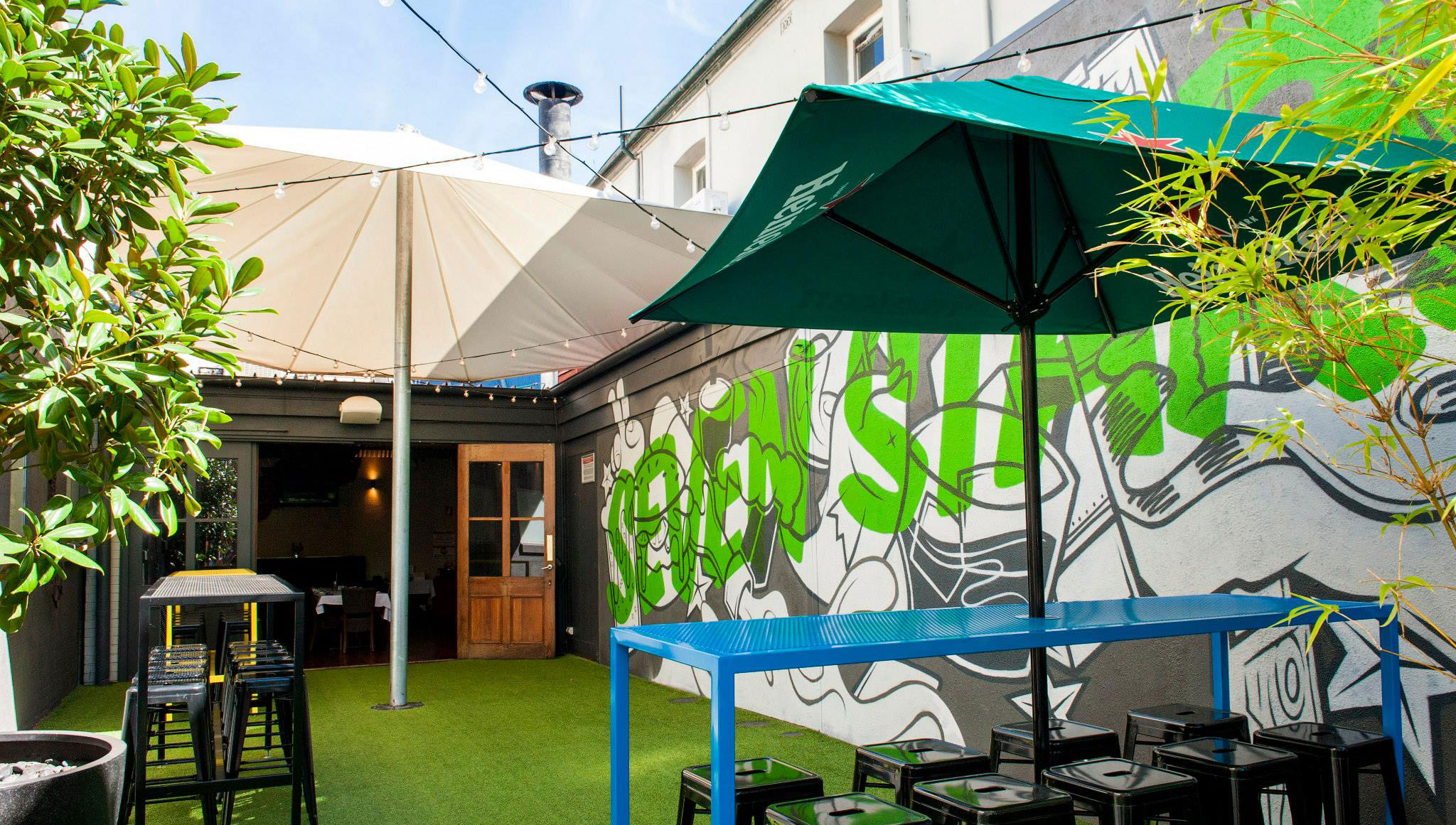Music Industry Council behind update to SA live music laws

Image: The Seven Stars Hotel in Adelaide
South Australia’s Music Industry Council (MIC) was instrumental to the lifting of some of the state’s most out of datelaws, including bans on certain types of music and the number of band members a venue can host onstage.
Announced Tuesday last week, an amendment bill has been applied to licensed premises that provide entertainment between 11:00am and midnight.
Troy Sincock, Chairperson of MIC and General Managerat local station Fresh 92.7, told TMN the draft Entertainment Consent bill was offered to the council prior toit being introduced into Parliament.
MIC was formed in 2014 as a direct response to recommendations in the State Government’s Thinker In Residence, Martin Elbourne’s final report into ‘The Future Of Live Music In SA. Its members include State Government and Adelaide City Council representatives, members of the Music Development Office, Local Government Association, Australian Hotels Association (AHA), Music SA (Lisa Bishop), APRA AMCOS, Musitec (David Grice), Adelaide Music Collective, 5/4 Entertainment and Fresh 92.7.
The draft Entertainment Consent bill was one of the MIC’s first initiatives.
“Through its core membership and close working relationships with industry stakeholders, MIC works to identify and address issues, and create opportunities for the ongoing development of the South Australian music industry,” said Sincock.
Sincock said the Council submitted a list of recommendationsto SAParliament addressing the reduction of red tape and the provision of more opportunities for music to be played in more venues.
The MIC’s five recommendations were: to remove the requirement for separate entertainment consent on all liquor licences; amendments to Building Code Regulations to support small businesses and encourage the uptake of live music; to address issues of external noise attenuation in new buildings and developments; to allow minors to perform in licensed premises; and to address the limitations on temporary occupation of buildings.
The Government’s restrictions meant late ‘80s dance-club influencers Happy Mondays couldn’t perform at the Seven Stars Hotel because they had too many members. Meanwhile, the Belgium Beer Garden was only allowed to have live music in the form of harps and didgeridoos, and Dublin Hotel was only allowed to host and play Irish folk music.
Now, the State Government has removed the need for licensed venues to apply for “entertainment consent” in order to hold live music and certain other kinds of entertainment between 11am and midnight.
“MIC is thrilled with the outcome as the amendment bill removes the biggest barrier to the live music sector,” Sincock told TMN. “This will undoubtedly change the landscape for live music in South Australia.”
Live Music Office also played an integral role in the Bill’s passing. Its Policy Director John Wardle said if the out-of-date laws remained in place, the SA industry would not be able to reach its potential.
“If we look back to NSW in 2007 and the changes to liquor laws that introduced new bars and licensed restaurants, the key to the activation of these and existing venues for live performance were including associated changes to the building code and planning regulations,” Wardle said. “It’s therefore greatly encouraging to recognise the ongoing work with government and the Music Industry Council in this area throughout this year, that will also bring new planning regulations to support the Liquor Act reforms into 2016”.
Musitec’s David Grice said expects to see a boost to the night time economy and jobs for musicians: “The work of the Music Industry Council has been pivotal to these reforms along with the highly valued input of the National Live Music Office,” he said.
Sincock told TMN the MIC iscurrently working with government agencies such as the Department of Planning and the Local Government Associationof SA (LGA) to further reduce red tape in the state’s live music sector.

































